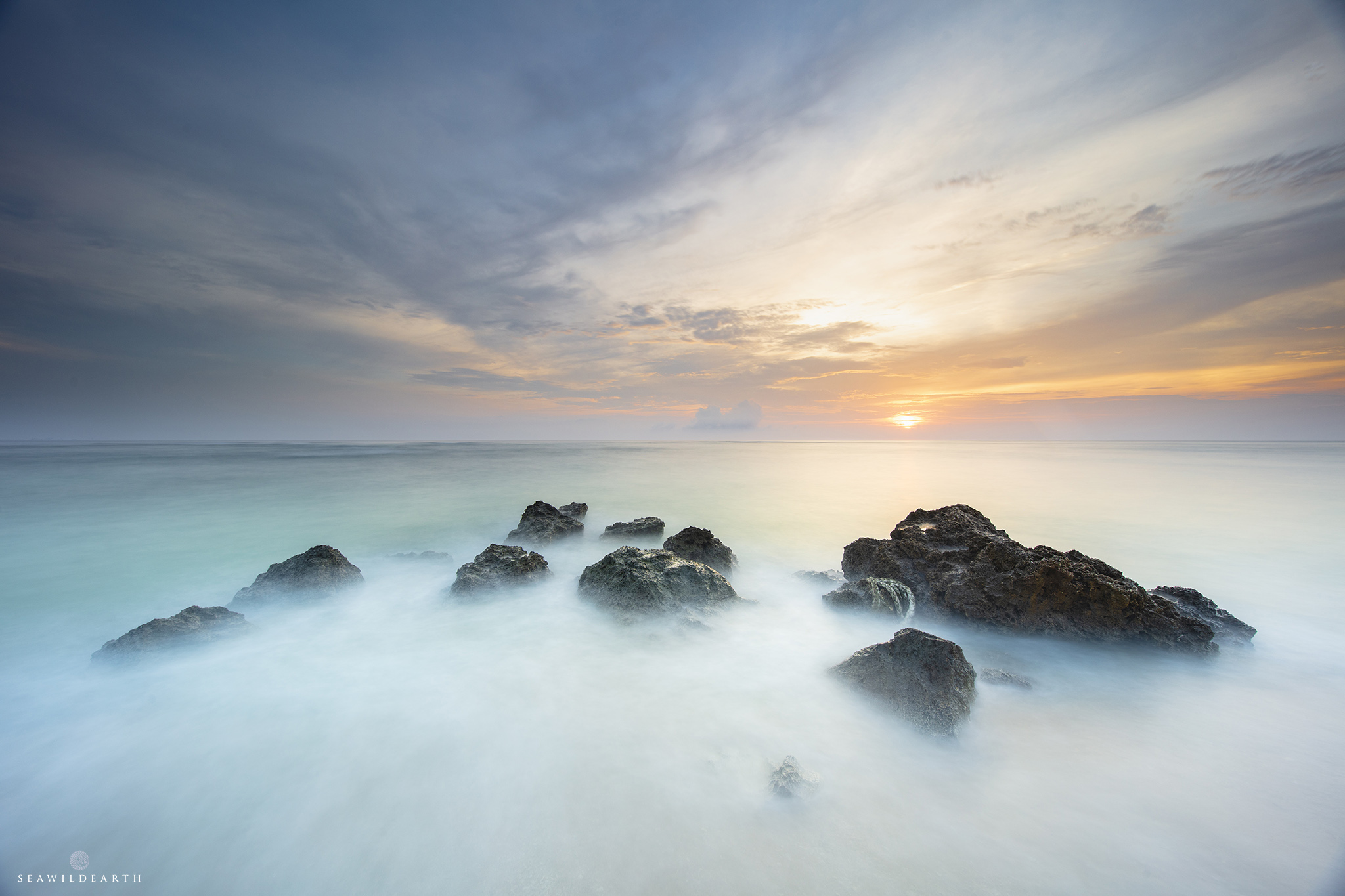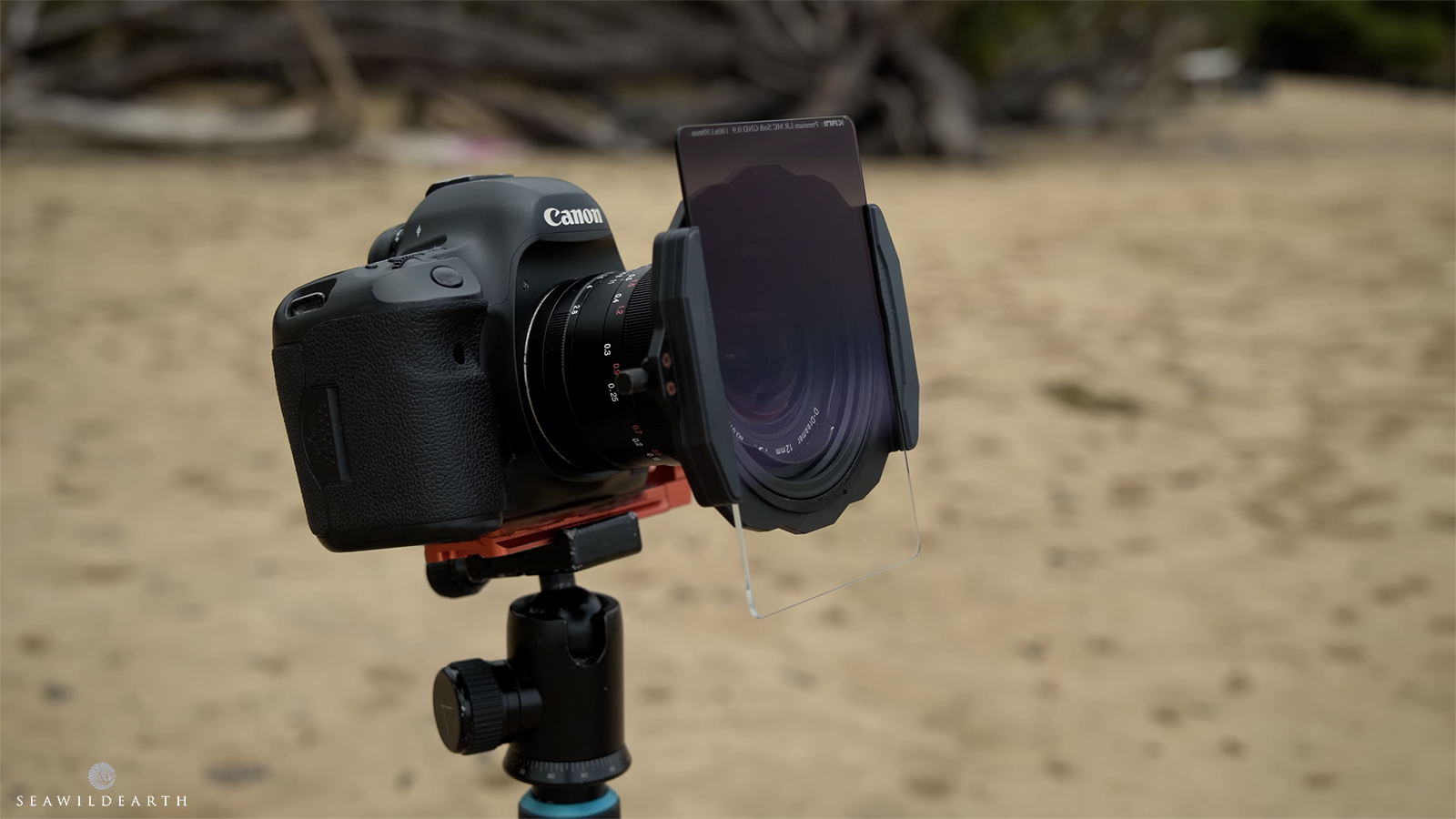The Filtered Landscape
A camera is just a tool to capture light. Filters and post processing create the aesthetic appeal.
Landscape Photography is an incredibly satisfying art medium from the perspectives of both the artist or the audience. But there is a lot more to what we see at the end of a long process other than the image, the recording of the composition being the least taxing of said process. A camera is just a camera, a tool. Buying the latest, biggest and baddest option out there will not make you a better photographer. It will just make you someone with a very nice camera with limited knowledge on how to make it shine.

Landscape Photography for the largest part is down to the application of photographic filters and post production.
Composition in Landscape Photography is paramount, after all it is that which attracts the audience in the first place. Once that has been locked in though the main issue is the exposure. If you have a bright sunny day across the Ocean but have dark rocks or cliffs in the foreground the image is going to be unbalanced. A camera is programmed to meter in such a way so as to guard the highlights from over exposing. Once overexposed an image is finished, you'll not be able to get any details back in post production irrespective of the efforts you go to. 0 data is 0 data, end of story.
Landscape photography instead is heavily reliant on the use of photographic filters, and for the most part these are know as Neutral Density (ND) Filters. These filters come in varying strengths of opacity. In their fundamental role they act like sunglasses for your camera. Try exposing a camera in the middle of the day under a burning sun at ISO100. With an unfiltered lens you'll be looking at either closing down your aperture to the max and potentially also having to speed up your shutter speed too. Both of these scenarios, but more so the max aperture, carry inherent reasons as to why you would be best in avoiding them. By placing a darker element, an ND Filter, in front of the lens means you can then open your aperture to more acceptable settings that tend to be more acceptable for landscape photography, hovering in the range between f8 and f16.

A Graduated Neutral Density filter in place.
Varying strengths of ND Filters reduce the amount of light by a factor of X stops from entering the lens depending on the look the photographer may be after. Such filters are generally used to slow down a shutter speed so as to create the illusion, as above, of water taking on a more silky effect. Other filters such as Graduated ND's have a zone of opacity, again in various amounts of obscurity, so as to allow lighter areas in an image be masked over so that longer exposures can be made to bring out the details in shaded areas while not overexposing the highlights.
At its base landscape photography is about effective filter use. Beyond that the main hurdle is then post production. How you manipulate the image once you've got the composition 'in the can'. One aspect of the use of ND filters though is the need for reliable stability. If you're going to be taking longer exposures the need for a good tripod option is paramount. So many folks spend thousands on their camera gear yet look for the cheapest tripod for their imaging trials.
In the future I'll be posting some very basic guidelines with regards to basic editing techniques using Adobe Lightroom and Photoshop. Two softwares that tend to be the mainstay for the majority of Photographers the world over when it comes to editing. I use exclusively filters by KANI Optics and have a full compliment of filters for my imaging. Many trips have been documented in the past and now appear on my YouTube Channel so check that out too for imaging adventures in landscape photography around Okinawa.
To see the wallpaper behind this post simply click on the small circular icon with the opposing arrows in the top right corner of this page when you scroll to the top. Click a second time to return to the standard page view.
"In wilderness I sense the miracle of life, and behind it our scientific accomplishments fade to trivia"
Charles Lindbergh
About the Author
Internationally recognized as a provider of quality mixed media Mark Thorpe is always on the search for captivating content.

Photographer / Cameraman
Mark Thorpe
Emmy Award Winning wildlife cameraman and Internationally published landscape photographer Mark Thorpe has been an adventurer since he could walk! Spending 17yrs as an Underwater Cameraman at the start of his imaging career the highlight of which was being contracted to work with National Geographic. In that role as a field producer and cameraman he's been privy to a mixed bag of hair raising adventures. For some reason he was always selected for projects relating to large toothed marine predators such as Great White and Tiger Sharks, Sperm Whales and Fur Seals. Additionally he has also been active within Southern Africa on terrestrial projects dealing with a wide array of iconic wildlife.
Currently based in Okinawa, Japan he's always on the lookout for his next big adventure. He shares his exploits online with a totally organic social audience in excess of 200,000. Sponsored by a number of photographic industry manufacturers he is constantly scouring the islands for captivating landscape and oceanscape compositions. Videography wise he continues to create short photographic tutorial videos as well as creating content about the diversity of wildlife within Okinawa and the Ryukyu Islands of Southern Japan.
Mark has just created a Patreon channel where he's hoping to raise an audience of supporters who through small monthly shows of appreciation will allow him to concentrate on the creation of a wildlife and landscape imaging themed YouTube Channel. If you feel that is something you'd like to support you can visit his Patreon Channel for more information.
